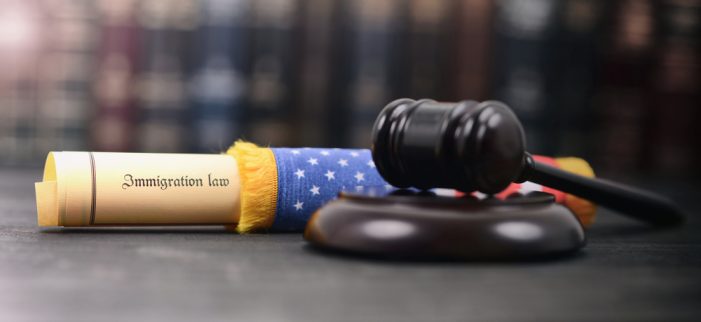In the complex world of U.S. immigration law, one of the most critical—and often misunderstood—factors is how a person entered the country. This single detail can shape an immigrant’s entire legal journey, including their eligibility to adjust status, obtain waivers, or apply for other forms of relief.
This article explores the legal landscape for those who entered the United States with inspection (lawful entry) and without inspection (unlawful or unauthorized entry). We will also address the broader challenges faced by undocumented immigrants, including fear of deportation and family separation, and review pathways to legalization that offer hope and dignity.
Lawful vs. Unlawful Entry: What’s the Difference?
Entry with Inspection (EWI):
When an individual enters the U.S. at a designated port of entry (airport, border crossing, etc.) and is admitted by an immigration officer—whether with a visa, parole, or other authorization—they are considered to have entered “with inspection.” This lawful entry is documented and allows for greater flexibility when pursuing future immigration benefits.
Entry Without Inspection (EWIs or “Illegal Entry”):
This refers to individuals who cross the U.S. border without going through a port of entry or evading inspection by immigration officials. Because no official record of entry exists, this significantly complicates their ability to adjust status within the U.S.
How Entry Type Affects Legalization Options
The way someone entered the U.S. influences which legal options are available to them.
- Adjustment of Status (AOS)
- With Inspection: Individuals who were lawfully admitted are typically eligible to apply for a green card (adjust status) from within the U.S. if they are immediate relatives of U.S. citizens (spouse, parent, child).
- Without Inspection: Those who entered unlawfully generally cannot adjust status from within the U.S.—unless they qualify under special programs like VAWA, asylum, or certain protections under INA Section 245(i) (which allows some individuals to adjust status if they had a petition filed before April 30, 2001).
- Consular Processing
- If adjustment of status is not possible, immigrants may apply for a green card via consular processing from their home country. However, if they’ve accrued unlawful presence, they risk being barred from reentry for 3 or 10 years.
Waivers for Unlawful Presence: I-601 and I-601A
Thankfully, U.S. immigration law provides a way forward through waivers that forgive certain grounds of inadmissibility:
- Form I-601: A waiver for unlawful presence and other inadmissibility grounds, filed after leaving the U.S.
- Form I-601A: A provisional waiver that allows certain immediate relatives of U.S. citizens or green card holders to apply before leaving the U.S., minimizing family separation and uncertainty.
To qualify, applicants must show that denying them a green card would cause extreme hardship to their U.S. citizen or permanent resident spouse or parent.
Humanitarian Relief Options for Undocumented Immigrants
While undocumented immigrants often feel trapped in legal limbo, several humanitarian pathways exist:
- VAWA (Violence Against Women Act)
Immigrants married to abusive U.S. citizens or green card holders can self-petition for legal status without their spouse’s knowledge or support. This includes both women and men.
- Asylum
For those who fear persecution based on race, religion, nationality, political opinion, or membership in a particular social group. Must be filed within one year of entry, though exceptions exist.
- TPS (Temporary Protected Status)
Designated to nationals from countries experiencing war, disaster, or other extraordinary conditions. Provides temporary protection from deportation and work authorization.
- Cancellation of Removal
Available in immigration court to those who:
- Have been in the U.S. for at least 10 years,
- Demonstrate “good moral character,” and
- Can show that deportation would cause exceptional and extremely unusual hardship to a U.S. citizen or green card-holding spouse, parent, or child.
These options can be life-changing—but require legal expertise and strong evidence to succeed.
The Emotional and Social Cost: Living in Fear and Uncertainty
Every day, undocumented immigrants live with the fear of being separated from their families, detained, or deported. They may avoid medical care, police protection, or even schools due to fear of being exposed. The psychological toll is immense—marked by anxiety, depression, and isolation.
Yet these same individuals are essential contributors to our society. They build businesses, raise families, care for the elderly, and serve in faith communities. The moral case for legalization is strong: keeping families together and recognizing human dignity should be at the heart of immigration policy.
The Power of Legal Guidance: You Are Not Alone
Navigating immigration law is complicated—and every case is unique. That’s why it is critical to consult with a trusted, experienced immigration attorney who can analyze your case, explain your options, and help you build a path forward.
The legal team at Figeroux & Associates, located at 26 Court Street, Suite 701, Brooklyn, NY 11242, offers compassionate and personalized immigration consultations. Whether you entered with or without inspection, they are here to help you explore:
- Green card eligibility,
- Waiver applications,
- Humanitarian relief,
- Deportation defense, and
- Paths to lawful status or citizenship.
A Call to Action: Begin Your Journey Today
If you’re living in fear, unsure about your status, or confused about your legal options—don’t wait. Legal help is available, and your future is worth fighting for.
- Call 855-768-8845
- Visit www.askthelawyer.us
Immigration law is complex, but you don’t have to face it alone. With the right legal guidance, you can move from uncertainty to security, from fear to hope.
Final Thoughts: Hope, Dignity, and Legalization
Whether you crossed a border without inspection or entered legally and overstayed, you are still a human being with dreams, family, and dignity. The law provides tools to help you find stability—and Figeroux & Associates is ready to help you use them.
Don’t let fear keep you silent. Your journey toward legalization can begin today.

